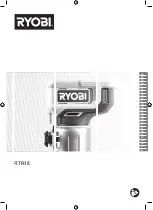
Appendix D
Regulatory Information
16
Wireless-N Ethernet Bridge with Dual-Band
Appendix D:
Regulatory Information
FCC Statement
This device complies with Part 15 of the FCC Rules.
Operation is subject to the following two conditions: (1)
This device may not cause harmful interference, and (2) this
device must accept any interference received, including
interference that may cause undesired operation.
This product has been tested and complies with the
specifications for a Class B digital device, pursuant to Part
15 of the FCC Rules. These limits are designed to provide
reasonable protection against harmful interference in
a residential installation. This equipment generates,
uses, and can radiate radio frequency energy and, if not
installed and used according to the instructions, may
cause harmful interference to radio communications.
However, there is no guarantee that interference will not
occur in a particular installation. If this equipment does
cause harmful interference to radio or television reception,
which is found by turning the equipment off and on, the
user is encouraged to try to correct the interference by
one or more of the following measures:
Reorient or relocate the receiving antenna
•
Increase the separation between the equipment or
•
devices
Connect the equipment to an outlet other than the
•
receiver’s
Consult a dealer or an experienced radio/TV technician
•
for assistance
FCC Caution: Any changes or modifications not expressly
approved by the party responsible for compliance could
void the user’s authority to operate this equipment.
For operation within the 5.15 ~ 5.25GHz frequency range,
it is restricted to indoor environments.
FCC Radiation Exposure Statement
This equipment complies with FCC radiation exposure
limits set forth for an uncontrolled environment. End users
must follow the specific operating instructions for satisfying
RF exposure compliance. To maintain compliance with
FCC RF exposure compliance requirements, please follow
operation instruction as documented in this manual.
This transmitter must not be co-located or operating in
conjunction with any other antenna or transmitter.
This equipment should be installed and operated with
minimum distance 20cm between the radiator and your
body.
The availability of some specific channels and/or
operational frequency bands is country dependent
and is firmware programmed at the factory to match
the intended destination. The firmware setting is not
accessible by the end user.
Safety Notices
Caution: To reduce the risk of fire, use only No.26 AWG
•
or larger telecommunication line cord.
Do not use this product near water, for example, in a
•
wet basement or near a swimming pool.
Avoid using this product during an electrical storm.
•
There may be a remote risk of electric shock from
lightning.
Use only with UL-listed Information Technology
•
Equipment (ITE).
WARNING:
This product contains lead, known
to the State of California to cause cancer, and
birth defects or other reproductive harm. Wash
hands after handling.
Industry Canada Statement
This Class B digital apparatus complies with Canadian
ICES-003 and RSS210.
Operation is subject to the following two conditions:
This device may not cause interference and
1.
This device must accept any interference, including
2.
interference that may cause undesired operation of
the device.
Industry Canada Radiation Exposure Statement:
This equipment complies with IC radiation exposure limits
set forth for an uncontrolled environment. End users must
follow the specific operating instructions for satisfying
RF exposure compliance. To maintain compliance with
IC RF exposure compliance requirements, please follow
operation instruction as documented in this manual.
This transmitter must not be co-located or operating in
conjunction with any other antenna or transmitter.
Restrictions in the 5 GHz Band
The device for the band 5150-5250 MHz is only
1.
for indoor usage to reduce potential for harmful
interference to co-channel mobile satellite systems.
This device has been designed to operate with an
2.
antenna having a maximum gain of 1.58 dBi and
1.45 dBi at 2.4 GHz and 5 GHz respectively. Antenna
having a higher gain is strictly prohibited per
















































